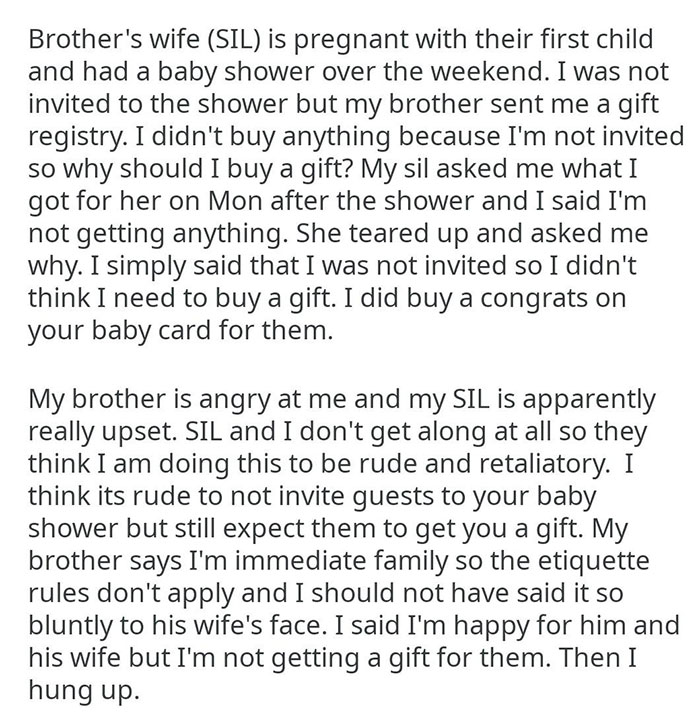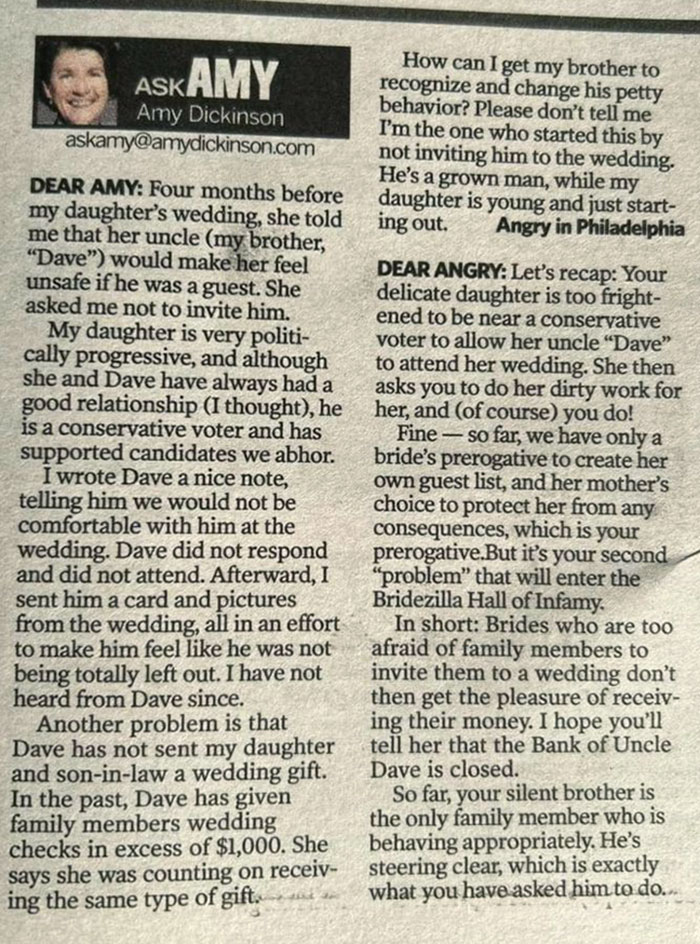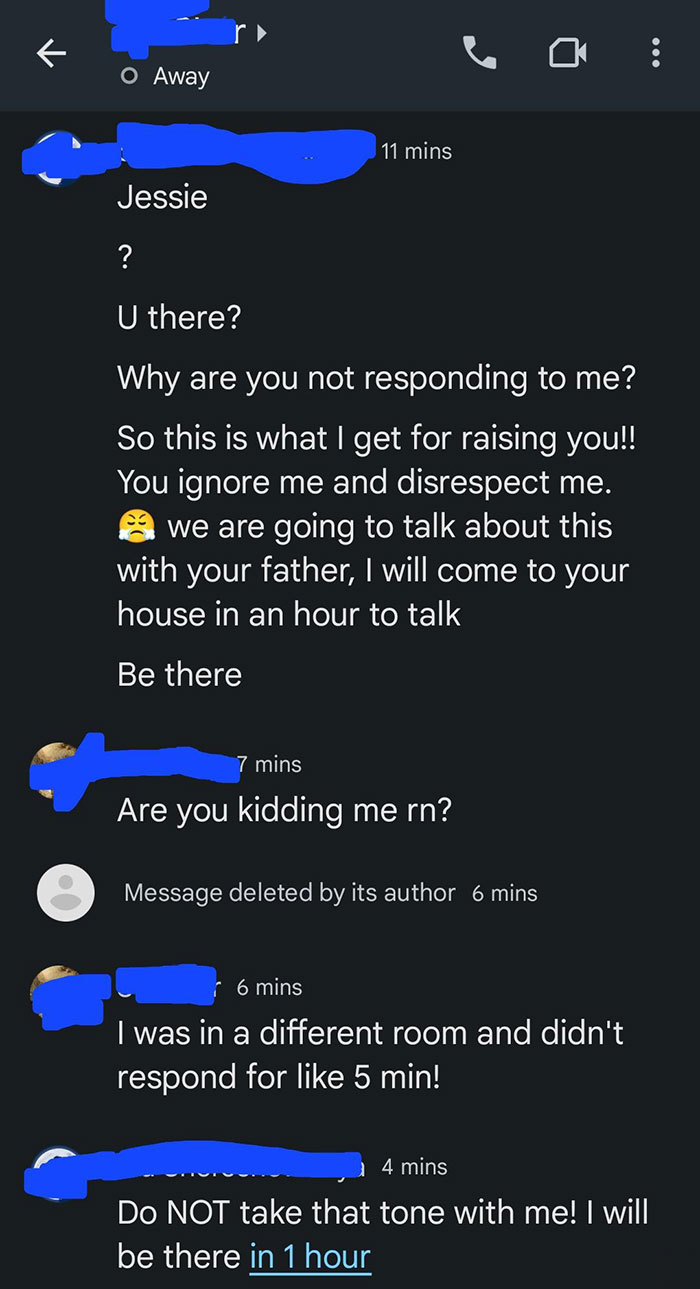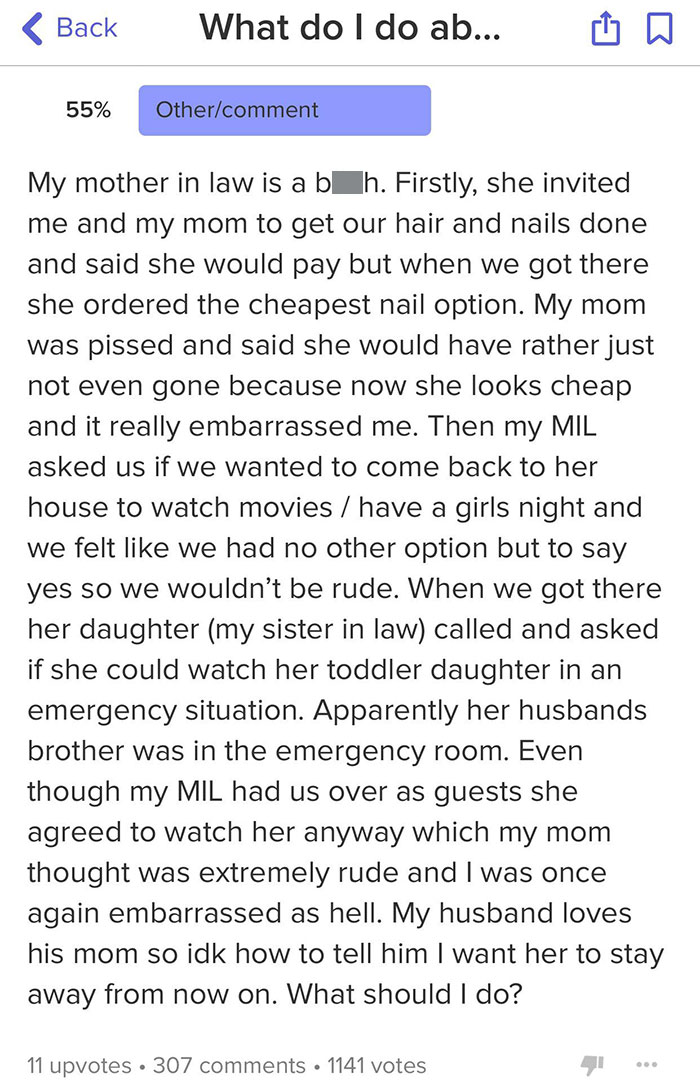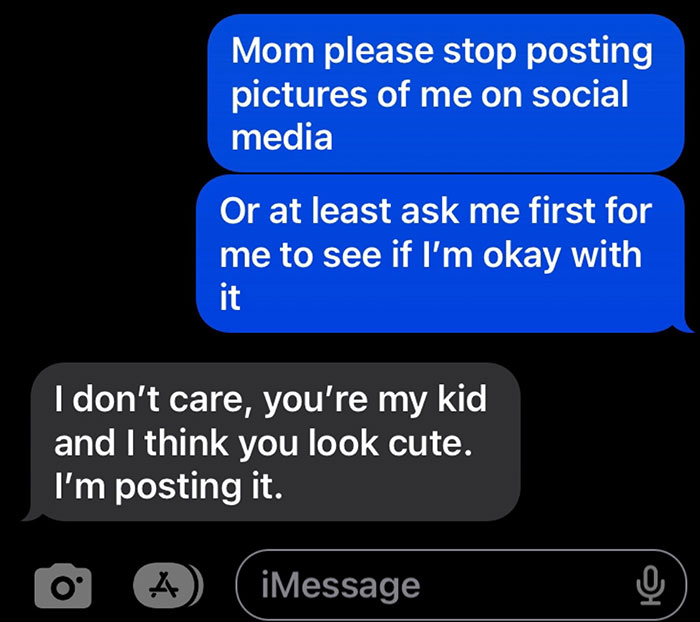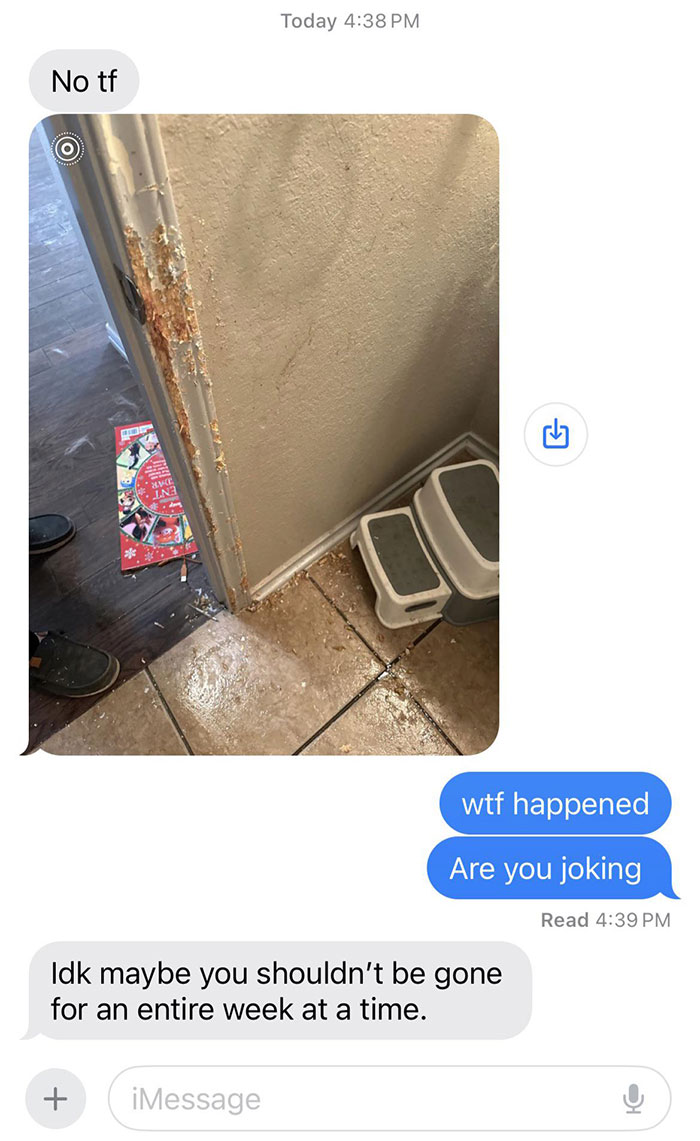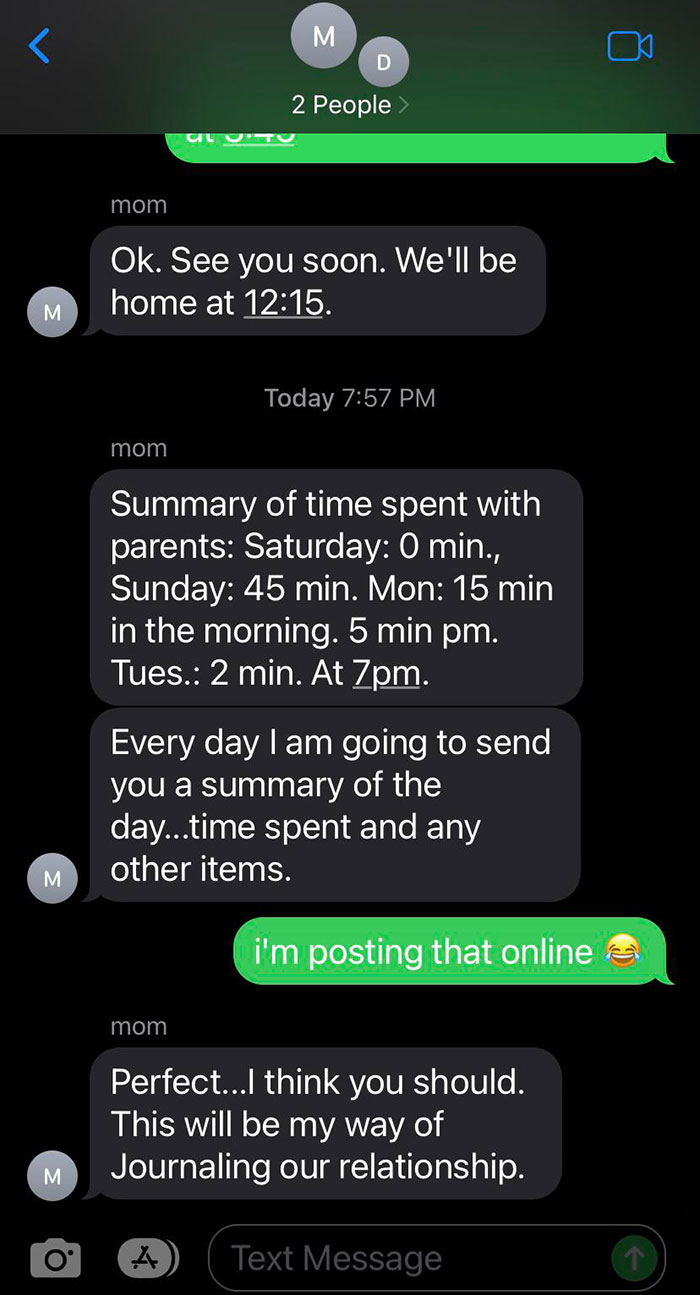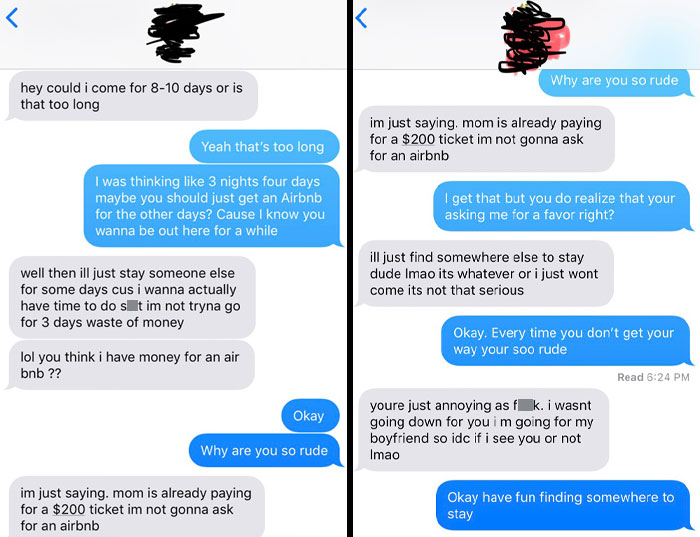But just because someone is family doesn’t mean you have to let them walk all over you or make unreasonable demands. In that case, feel free to call them out online! Below, you’ll find screenshots and photos featuring shockingly entitled behavior from relatives. We hope this list doesn’t remind you of any of your own family members, pandas, and keep reading to find conversations with Rachel Garduce, LCSW from Modern Therapy and Al Hoberman, MT-BC, LCAT from Zencare! “If individuals are consistently favored or their needs were met without effort, they may develop a sense of entitlement. Factors like age, race, and socioeconomic status also shape how others treat them, influencing their entitlement levels and opportunities,” Rachel explained. “Additionally, entitlement can serve as a defense mechanism against insecurity, where individuals seek validation and control to compensate for their own internal doubts.” “Maybe it’s wanting to feel special, to be cared and provided for, or to know that you’ll be there for them,” the expert explained. “Wanting a lot is a sign that someone feels that they’re lacking a lot, whether they’re fully aware of it or not.” “Cultural norms also play a role. For instance, if a culture values certain family roles, individuals might feel entitled to specific treatment within their families based on those norms,” Rachel added. “These dynamics shape their expectations and perceptions of entitlement within family relationships.” “On the other hand, if someone has grown up in an environment where this kind of behavior was rewarded, or they observed it in others, it could be that this is just what feels normal to them,” Al added. “They might not even see it as special treatment, it’s just what they’re used to doing.” “Remember, you’re not obliged to fulfill every demand, especially if it harms you or compromises your own well-being. Seeking help from a therapist can guide you in managing family issues effectively. It’s crucial to prioritize your well-being and assert your boundaries in these situations,” she explained. “Say I have a parent who keeps giving me unsolicited parenting advice. My first step is to tell them it’s unwelcome, and ask them, firmly but kindly, to stop,” Al suggests. “Next, if they persist, I might say something like, ‘Listen, if you’re really not able to stop, I’m going to end our conversation. We can talk about something else another time.’” Follow Bored Panda on Google News! Follow us on Flipboard.com/@boredpanda! Please use high-res photos without watermarks Ooops! Your image is too large, maximum file size is 8 MB.
